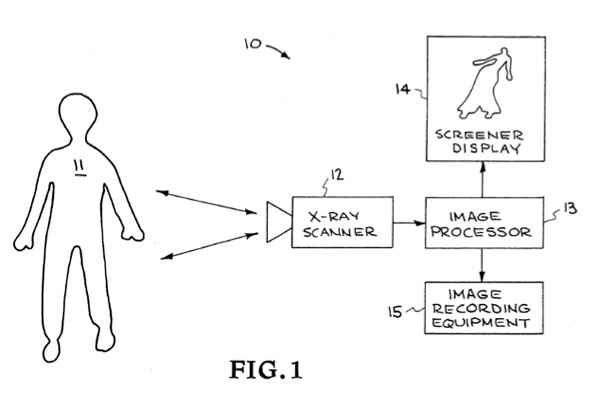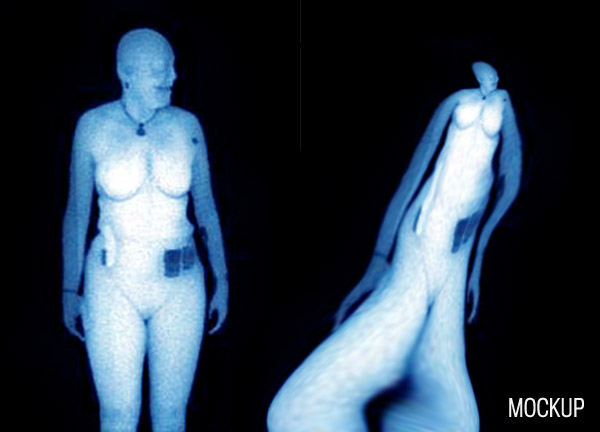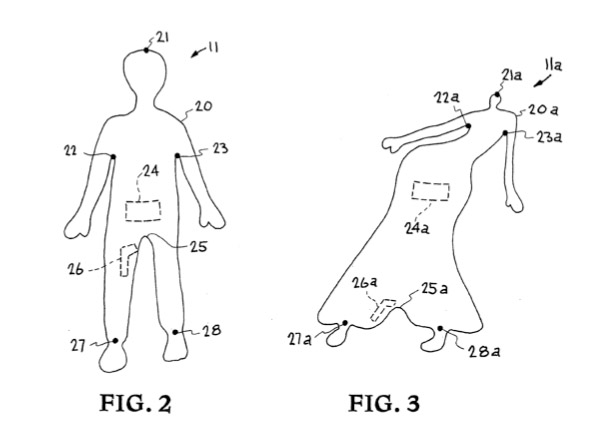Should TSA Body Scanners Distort Naked Images?

A Lawrence Livermore National Laboratory scientist says he has a simple fix for the uproar over the Transportation Safety Agency's body scanners. Distort the image, Willard Wattenburg argues, and you take away (at least some of) the privacy objections that could be made. In Wattenburg's formulation, noted by the Washington Post, bodies would be stretched as in a funhouse mirror, presumably removing any titillation associated with nudity.
The TSA is pursuing a more complex computer-vision system that, as we reported last week, may not be as easy to construct as the agency hopes.
Wattenburg first filed a patent for his system in 2006, after which he says he contacted the Department of Homeland Security because it was obvious to him that as soon as the scanners went into use, people would "scream like hell because they're taking the clothes off everybody" The DHS wasn't interested, according to the Post story.
Technologically, image processing to distort a body's form is trivial. You take the image that comes in from the scanner, pick some reference points on the body, and then elongate, resize, and stretch the image. The images come out looking less human very quickly -- and that's precisely the point. As Wattenburg notes, any kid with Photoshop could do it. We took him at his word and mocked up -- in rough fashion -- what one of the images could look like after going through one of these distortion algorithms.
The big question seems to be whether Wattenburg's system would allow TSA scanners to see whatever weapons or explosives they might be trying to see. To find out, there would have to be extensive field testing, which has never been done and is not currently planned.
The new system also would not obviate concerns about the accidental or malicious
storage of images. Nor would it answer Jeff Goldberg's concerns about bombs hidden in body cavities and which these scanners cannot detect.

